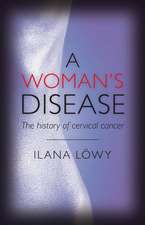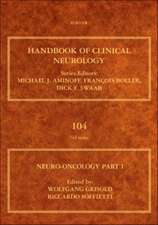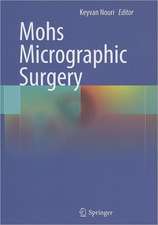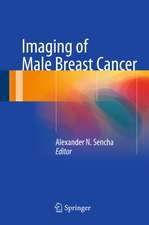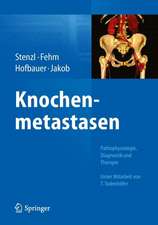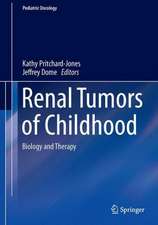Stress Response Pathways in Cancer: From Molecular Targets to Novel Therapeutics
Editat de Georg T. Wondraken Limba Engleză Hardback – 21 noi 2014
Preț: 1173.41 lei
Preț vechi: 1235.17 lei
-5% Nou
Puncte Express: 1760
Preț estimativ în valută:
224.54€ • 240.10$ • 187.21£
224.54€ • 240.10$ • 187.21£
Carte tipărită la comandă
Livrare economică 17 aprilie-01 mai
Preluare comenzi: 021 569.72.76
Specificații
ISBN-13: 9789401794206
ISBN-10: 9401794200
Pagini: 500
Ilustrații: XII, 446 p. 56 illus., 52 illus. in color.
Dimensiuni: 155 x 235 x 22 mm
Greutate: 0.82 kg
Ediția:2015
Editura: SPRINGER NETHERLANDS
Colecția Springer
Locul publicării:Dordrecht, Netherlands
ISBN-10: 9401794200
Pagini: 500
Ilustrații: XII, 446 p. 56 illus., 52 illus. in color.
Dimensiuni: 155 x 235 x 22 mm
Greutate: 0.82 kg
Ediția:2015
Editura: SPRINGER NETHERLANDS
Colecția Springer
Locul publicării:Dordrecht, Netherlands
Public țintă
ResearchCuprins
Preface.- Introduction to cell stress responses in cancer: The big picture.- DNA repair dysregulation in cancer: From molecular mechanisms to synthetic-lethal opportunities.- Cell cycle checkpoint defects as anticancer targets: From molecular mechanisms to therapeutic opportunities.- p53 at the crossroads between stress response signaling and tumorigenesis: From molecular mechanisms to therapeutic opportunities.- Sirtuins as a double-edged sword in cancer: From molecular mechanisms to therapeutic opportunities.- MicroRNA regulated stress responses in cancer.- Senescence in oncogenesis: From molecular mechanisms to therapeutic opportunities.- Pro-senescence therapy for cancer: time for the clinic.- Integrating proteotoxic stress response pathways for induction of cell death in cancer cells: molecular mechanisms and opportunities.- The Hsp70 family of heat shock proteins in tumorigenesis: From molecular mechanisms to therapeutic opportunities.- The ubiquitin-proteasome system (UPS) as a cancer drug target: Emerging mechanisms and therapeutics.- Endoplasmatic reticulum stress in multiple myeloma: From molecular mechanisms to therapeutic opportunities.- Melanomagenic gene alterations viewed from a redox perspective: Molecular mechanisms and therapeutic opportunities.- Targeting hypoxic adaptations of cancer cells: Molecular mechanisms and therapeutic opportunities.- Targeting glycolytic adaptations of cancer cells: from molecular mechanisms to therapeutic opportunities.- At the crossroads between mitochondrial metabolite transport and apoptosis: VDAC1 as an emerging cancer drug target.- Inflammatory dysregulation and cancer: From molecular mechanisms to therapeutic opportunities.- Cell-nonautonomous ER stress-mediated dysregulation of immunity by cancer cells.- Index.
Textul de pe ultima copertă
It is now established that dysregulated cell stress response pathways play a critical role in tumorigenesis, and a refined mechanistic understanding of this phenomenon at the molecular level promises to open new avenues for targeted therapeutic strategies that may benefit cancer patients in the near future. Coauthored by recognized leaders in cancer research from five continents, this novel book provides a comprehensive perspective on cell stress response pathways and therapeutic opportunities. Focusing on the role of genotoxic, proteotoxic, oxidative, metabolic, and inflammatory stress in tumorigenesis, the book is essential reading for students, basic researchers, and biomedical health care professionals interested in cancer and therapeutic development.
Caracteristici
The book covers very recent research that promises to revolutionize cancer-directed chemotherapeutic interventions The book provides a unique translational coverage between molecular cancer biology and cancer-directed therapeutic development The book provides state-of-the-art coverage written by recognized experts from five continents Includes supplementary material: sn.pub/extras

